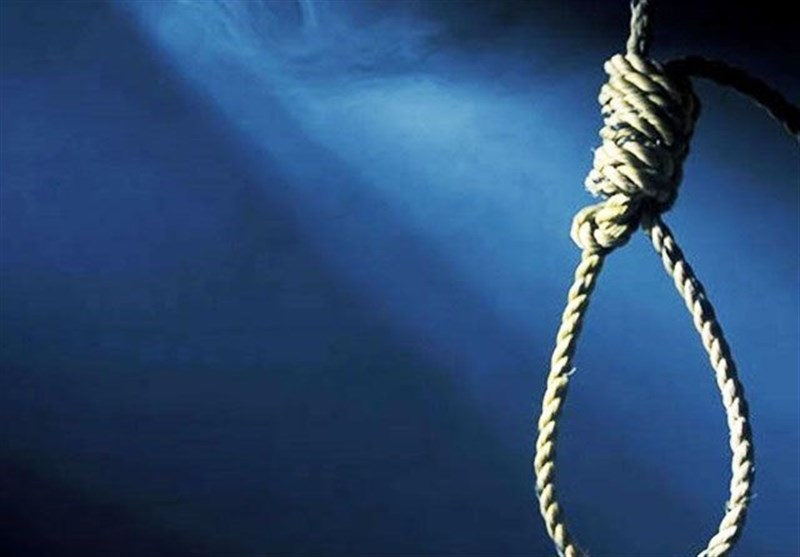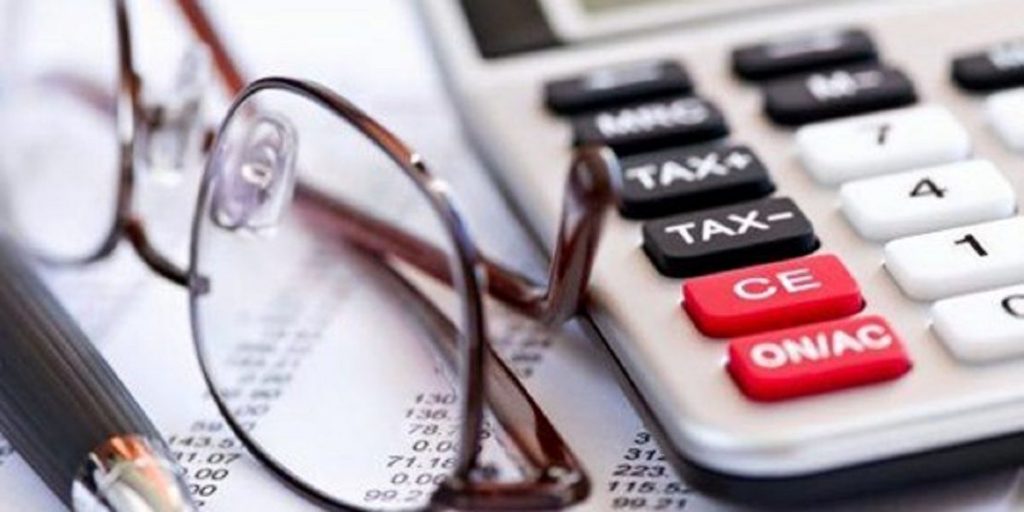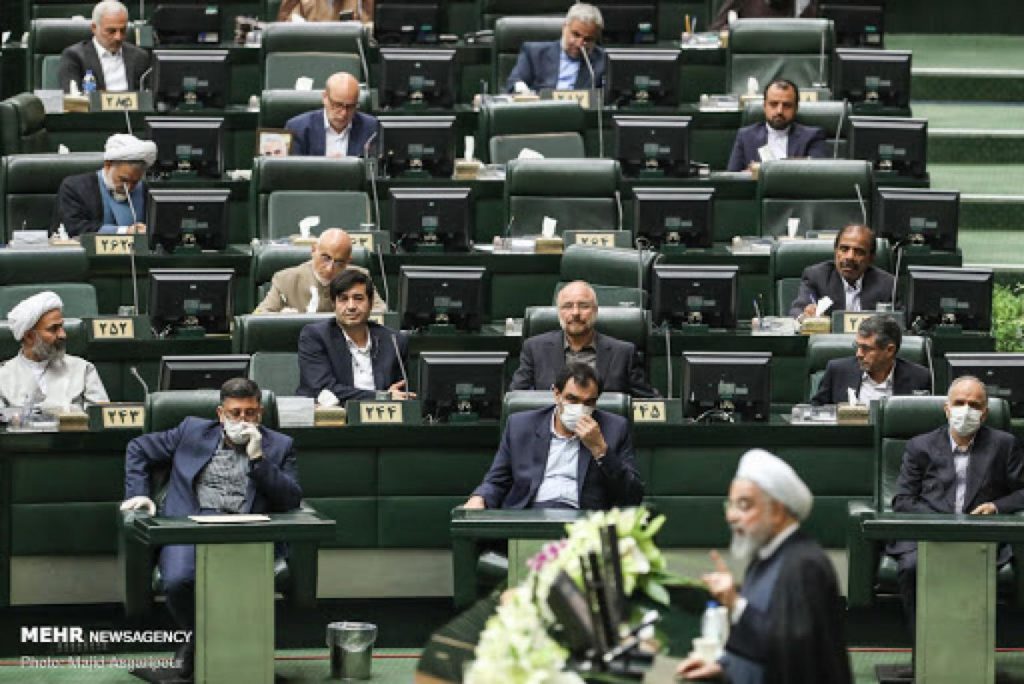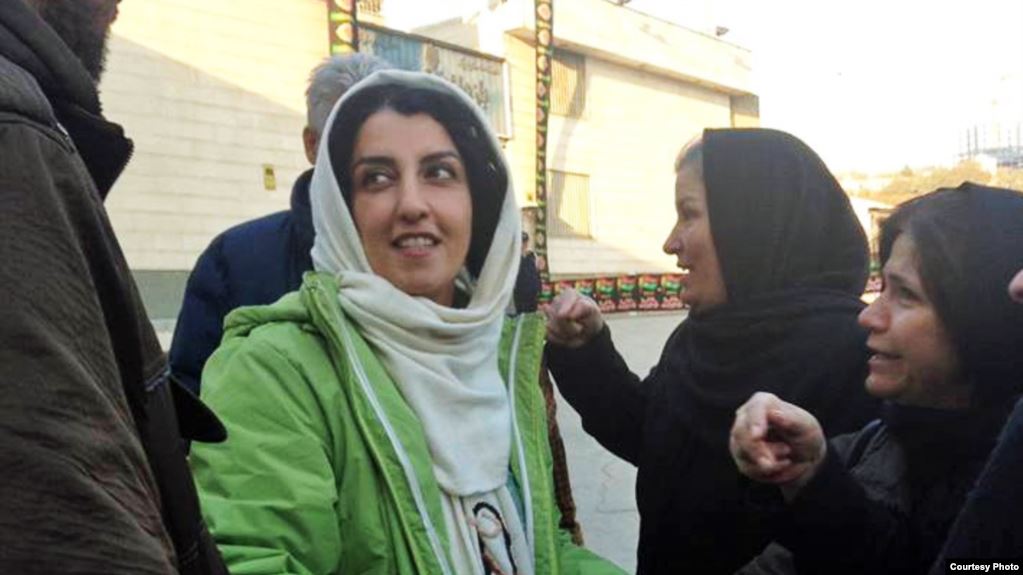
Shadow of Second Wave of Coronavirus on the Poor and Destitute
The editorial of Setareh Sobh states that it is the poor in Iran who are the main victims of the coronavirus as they cannot afford to follow health protocols.
Dealing with COVID-19 has become a serious economic issue. People have lost hope because of the impact of COVID-19 on economic conditions and the unprecedented skyrocketing of prices. The markets are suffering from a recession. According to forecasts, given the decrease in oil revenues due to US sanctions, the government has to compensate its budget deficit by raising the price of foreign currencies.
When the value of the national currency is declining, the government cannot expect people to follow health protocols; people are concerned that their assets are losing their value, so they have to get out of their houses which results in the disease spreading further. On the other hand, the psychological pressures of the economic conditions have made people less concerned with hygiene issues and their own health.
These circumstances make it harder to follow health protocols. If the think tanks and decision-makers do not think of a solution to improve the current situation, the number of those infected by COVID-19 will increase significantly next month.
These days, government hospitals and charities in Tehran, Mashhad, Karaj and other cities are full of poor people who are facing harsh economic conditions and cannot buy proper food and vitamins to keep healthy and prevent contracting coronavirus. So it is the poor who are hard hit by this disease. According to estimates, about 20 million people have been infected by coronavirus – with a large number of them being asymptomatic or showing mild symptoms. The real number of these people is not reflected in the related statistics.
They can spread the virus for up to a month, which is why we are witnessing the second wave of the coronavirus in Iran. Government is to be blamed for the current situation. And if they want to control the disease now, they must shut down the country for about a month. Otherwise, the wave of coronavirus will go on.
How to Stop Hunger Rebellion
The editorial of Jahan Sanat focuses on the inevitability of people taking to the streets to protest if officials do not find solutions to the existing problems.
With the outbreak of coronavirus, Iranian people have become less tolerant. Despite the fact that coronavirus is a global crisis, nobody in the world suffers as much as the Iranians who have been under sanctions for years. Government officials have no idea about how to contain the crisis; rather, as always they shirk responsibility.
People want comfort and peace; in so far as their comfort and peace are not provided or guaranteed, they might protest in any form. If instead of nepotism, the officials turn to meritocracy and use accountable managers, no such incidents would have happened in the country. If people suffer from poverty and unemployment, they will protest and take to the streets. And that is exactly what the statesmen are afraid of.
Iranian people take part in parliamentarian and presidential elections, but those who are elected take a different path after elections and do not represent the people’s demands any longer.
Recently, officials urged people to wear masks. But has the government given any masks to low-income families? The officials say the poverty line is 9 million tomans. But do workers receive 9 million tomans? Now officials are talking of the hunger rebellion, but nobody is offering any solution.
Due to many unsolvable problems, the lower classes have no other way but to take to the streets and protest. There is no middle class in Iran any longer; everybody is looking for bread. People in cities other than Tehran face much harsher conditions. This is a warning to Iranian officials: if they cannot find solutions to people’s serious problems, there will be protests in the future and no one can stop the people.
Beijing-Tehran Contract Behind the Great Wall of China!
The editorial of Aftab Yazd focuses on the 25-year contract that is going to be signed between Iran and China, explaining why it is not going to have any gains for the Iranian side.
In recent weeks, the 25-year contract between Iran and China has been considered based on past facts and estimates for the future. On the one hand, the government portrays an ideal prospect for the contract calling it “honorable.” The supporters of the “towards the East approach” believe that this contract will have huge strategic gains for Iran, as China is going to replace the United States’ hegemony in the future.
On the other hand, the opponents of the contract are worried because of Chinese measures in the past. The opponents point to China’s cooperation with Saddam Hussein during the eight-year Iran-Iraq war by selling arms to Baghdad, China’s agreement with sanctions resolutions against Tehran in the UN Security Council, and China’s excessive demands in countries where it has reached agreements.
Apart from speculations about the future or assessments based on past realities, how can this contract be evaluated today?
Going over two issues can help to answer this question. Apart from the 25-year contract, China and Iran have repeatedly placed emphasis on boosting relations and supporting each other in the international community. For instance, since Donald Trump decided to withdraw from the nuclear deal in May 2018, Beijing has always declared its support for the deal. Nevertheless, Chinese measures during this period are questionable.
While a contract was signed after the nuclear deal to develop Phase 11 of South Pars with cooperation from the French company Total and the Chinese firm CNPC, after the US withdrawal the French company left Iran immediately. While there was a lot of talk that the Chinese company would stay in Iran despite the White House’s pressures and would even take over Total’s share in the contract, CNPC also left Iran due to concerns over US sanctions.
While China has repeatedly declared its commitment to the JCPOA and has condemned the US sanctions as unilateral and illegal, under these sanctions China cut its oil imports from Iran by 90 percent in the early months of 2020. As a matter of fact, in the post-JCPOA era, China has abided by US sanctions.
The Shanghai Cooperation Organization which is described as the most important platform for cooperation in the East is also of significance for Iran. Since 2005, Iran has had observer status, and in 2008 Iran demanded full membership to the organization. While Russia and China are the most important founders and players in this organization and these countries’ officials have announced support for Iran’s membership, after 12 years Iran’s demand still has not come to fruition.
A current assessment of the situation – without taking into account the past or speculations about the future – shows that given the existing realities, achieving a strategic agreement between Beijing and Tehran seems to be impossible, as if it is behind the Great Wall of China.
25-year Contract With China Will not Compensate for the Failure of the Policy of Looking East
The editorial of Setareh Sobh explains why signing a contract with China will not help Iran to solve its economic problems.
The news of signing a 25-year contract between Iran and China has made people and activists worried, as the details of the contract have not been announced and nothing is transparent about it at present. The contract has not been finalized and ratified by the Parliament as yet; however, there are a lot of disagreements about it. So far, what is said in defense of the contract is that China is an important country on the international stage and it will defend Iran against external pressures.
The deputy to the foreign minister said that China buys oil from Iran despite US sanctions, but not very much. The question is: how can buying a little oil at a cheap price help Iran’s economy and solve the people’s problems? We can gather from the remarks of the political deputy to the foreign minister that the nature of the contract is political, aiming at countering the US maximum pressure strategy against Iran.
Now when China is suffering from US sanctions, how can it help to lessen the impact of sanctions on Iran’s economy? Right now, there is a trade war going on between China and the United States. Who can guarantee that if the Beijing-Washington relationship improves, China will choose to continue to support Iran?
Iranian people remember that during Obama’s presidency, China and Russia collaborated with America and signed UN Security Council Resolution 1929 against Iran. Is there any guarantee that these two countries would not take the side of the United States against Iran in the future?
Instead of betting on Russia and China and waiting for the US presidential election result, Iran should take advantage of Trump’s capricious personality and the coronavirus crisis in the United States to obtain concessions from him. Whether Trump wins or loses the US election, it is to Iran’s advantage to negotiate with the United States now, and not wait for the result of the US presidential election in November.

Rampant Executions in Iran

Iran seems to hand down and carry out execution sentences easily and frequently. Iranian Judiciary spokesman Gholam Hossein Esmaili has ruthlessly announced that the country will not hesitate from executing whoever is deemed as a disruptor of the country’s security.
Esmaili announced that Reza Asgari, a retired employee of the Defense Ministry, was executed last week on charges of “espionage” for the US Central Intelligence Agency (CIA).
Gholam Hossein Esmaili added that Asgari had “connections with the CIA” after his retirement in 2016 and had sold information on the country’s missile program to the agency in exchange for money. “He was arrested and tried and sentenced to death and he was executed last week,” declared the judiciary spokesman.
With regard to the death sentence of Mahmoud Moussavi Majd, Iran’s judiciary spokesman stressed that it is “definite” and “irrevocable.” According to the Iranian judiciary, Moussavi Majd had provided the American and Israeli intelligence services with information about Iran’s Defense Ministry, the IRGC Quds Force and “advisory forces” in Syria, as well as the whereabouts of former Quds Force Commander Qassem Soleimani.
The Iranian judiciary spokesman also confirmed the death sentences of Amir Hossein Moradi, Saeed Tamjidi, and Mohammad Rajabi, who had taken part in last November’s protests in Iran.
These three individuals have been charged with armed conflict, illegal exit from the country, taking part in protests, and participation in the destruction of public properties.
Furthermore, two Kurdish prisoners were executed in Urmia prison. Saber Sheikh Abdullah and Diako Rasoolzadeh were charged with collaborating in a bomb attack in the city of Mahabad 10 years ago.
Tax Evasion in Iran Amounts to 35 Trillion Tomans

With the severe drop in oil revenues and the continuation of the economic recession, the Iranian government faces a massive budget deficit. One solution to this issue is increasing taxes.
Officials of the Iran Tax Organization recently announced different statistics about the need for collecting taxes to run the country. But they also pointed to tax evasion which makes it unclear if the government can rely on these tax revenues to compensate its budget deficit.
In a recent interview, deputy head of the Iranian National Tax Administration Mahmoud Alizadeh talked about the common issue of tax evasion in Iran, saying that it takes place in two forms: hiding incomes and avoiding paying the required taxes.
He asserted that tax evasion in Iran annually amounts to 35 trillion tomans, stressing that a part of the exemptions is granted in an unclear way.
A major part of the tax exemptions in Iran are given to foundations and institutions under the aegis of Iran’s Supreme Leader Ali Khamenei; there are too many such foundations and institutions with extensive activities.
In 2018, the Iran Tax Organization announced a list of 10 institutions that are exempted from paying taxes, including the Foundation of Martyrs and Veteran Affairs, the Imam Khomeini Relief Foundation, the Mostazafan Foundation, the Executive Headquarters of Imam Khomeini’s Order, and the Islamic Development Organization.
While the Iran Tax Organization has announced that these institutions’ economic activities are not exempted from paying taxes, experts argue that the lack of transparency and effective supervision over their economic activities paves the way for tax evasion.
While Iran could export 2.7 million barrels of oil per day (bpd) before the US withdrawal from the nuclear deal and the reinstatement of US sanctions, its exports were said to have dropped to 70,000 bpd in March.
Khamenei Told the Parliament not to Impeach Hassan Rouhani

Once again, Iran’s Supreme Leader, Ali Khamenei, directly intervened in parliamentary affairs.
In a meeting held via video conference with lawmakers, Khamenei stressed on the continuation of the current Iranian government until the end of its term, thus disagreeing with some lawmakers’ plans to impeach Iranian President Hassan Rouhani.
He asserted, “I firmly believe that the governments must do their jobs to their last days,” adding that they should strongly follow up on issues to the end.
In recent days, 130 lawmakers had signed and submitted a motion to the Parliament’s board of directors to question Hassan Rouhani, while others had called for his impeachment.
It seems that after Khamenei’s remarks, lawmakers may stop pursuing such plans.
Khamenei also spoke on hearing sessions held for ministers, saying that they shouldn’t be “insulted and accused.”
Last week, during Foreign Minister Mohammad Javad Zarif’s hearing session in the Parliament, some lawmakers called him a “liar.”
In another part of his speech, Khamenei described Iran’s economy as “diseased,” calling for not having “illusory hopes” in foreign countries.
Iran’s supreme leader couldn’t hide his happiness with the new hardline Parliament in Iran. He called the 11th Parliament the “strongest and most revolutionary” after the Islamic revolution.
During the recent parliamentary elections, all candidates other than the hardline principlists were disqualified, and according to the Islamic Republic’s officials, the level of public participation in this election was 42 percent – the lowest turnout over the past 42 years.
During this meeting, the supreme leader was wearing a mask. He has avoided attending any public meetings over the past four months, holding all his meetings via video conference.
Prominent Human Rights Defender Contracts Coronavirus in Jail, Files Complaint

Vice President of the Defenders of Human Rights Center Narges Mohammadi, has been infected with coronavirus in prison and says she will file a complaint against prison officials due to the “lack of medical care” and for “imposing unbearable conditions” on prisoners in Zanjan prison where she is held.
In a letter written to her husband, Narges Mohammadi, explained her conditions in jail, saying 12 of her cellmates have contracted coronavirus.
She added that coronavirus symptoms were evident among prisoners “11 days ago.” We were tested for this virus “but never got our test results,” Mohammadi noted. She also mentioned that the prison officials have suddenly segregated the ward where she and other prisoners are kept.
Narges Mohammadi has been serving a 16-year prison sentence since 2015 for her activism.
